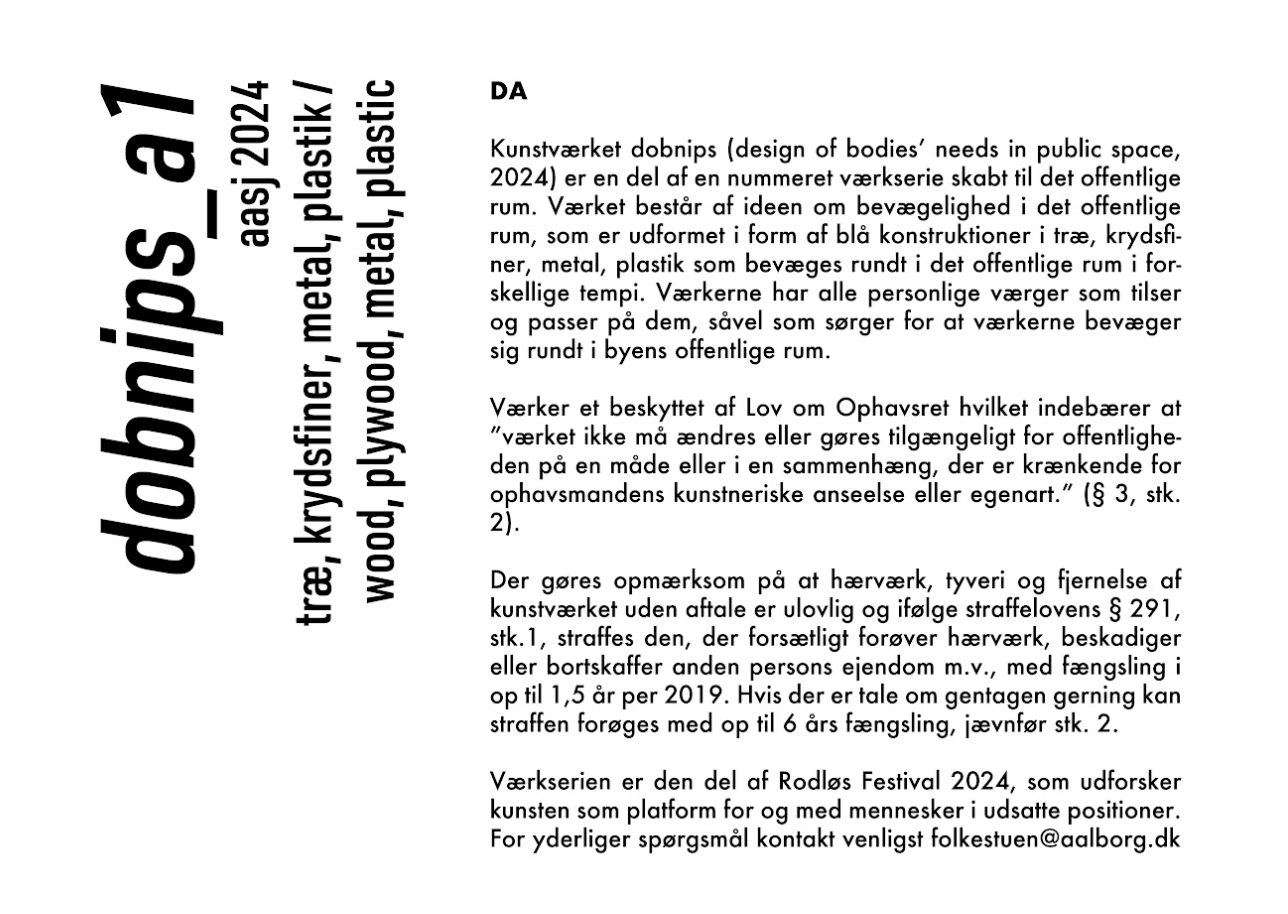dobnips (2024)
design of bodies needs in public space
Building workshop for legally protected public storage constructions.
Rodløs Festival, Aalborg.
Photos: AASJ
design of bodies needs in public space
Building workshop for legally protected public storage constructions.
Rodløs Festival, Aalborg.
Photos: AASJ
“Dobnips (design of bodies needs in public space)” tager udgangspunkt i en feministisk og kropslig tilgang til det offentlige rum, ved at synliggøre det usynlige arbejde, som mange personer med hjemløseerfaring dagligt udfører ved at bære deres ejendele rundt på kroppen døgnet rundt. Med de stigende fjentlige designtiltag såsom “dark design” i offentlige rum og lovgivning såsom lejrloven, indsnævres rummeligheden i de offentlige rum overfor personer der hjemløse erfaring systematisk i renoveringer af det offentlige rum, som ses i f.eks ombygning af Kennedy Pladsen, Nytorv og Gabels Torv i Aalborg, der førhen var hyppigt brugt. Værket består af en fælles design- og byggeproces, hvor der samarbejdes med personer med hjemløseerfaring for at udvikle og skabe opbevaringskonstruktioner til ejendele, som kan placeres i det offentlige rum under beskyttelse af kunstnerisk ophavsret.
dobnips (design of bodies' needs in public space) is a separatist building workshop at Aalborg Library for people experiencing homelessness where we will build storage constructions for indoor and outdoor public spaces licensed under artistic copyright protection. With the increasing use of ‘dark design’ in public spaces and legislation such as the Danish Camp Act, public spaces are becoming intentionally hostile to non-commercial social activities and daily users of spaces such as Kennedy Pladsen, Nytorv and Gabels Torv in Aalborg have witnessed remodeling aimed at removing sites for socializing.
